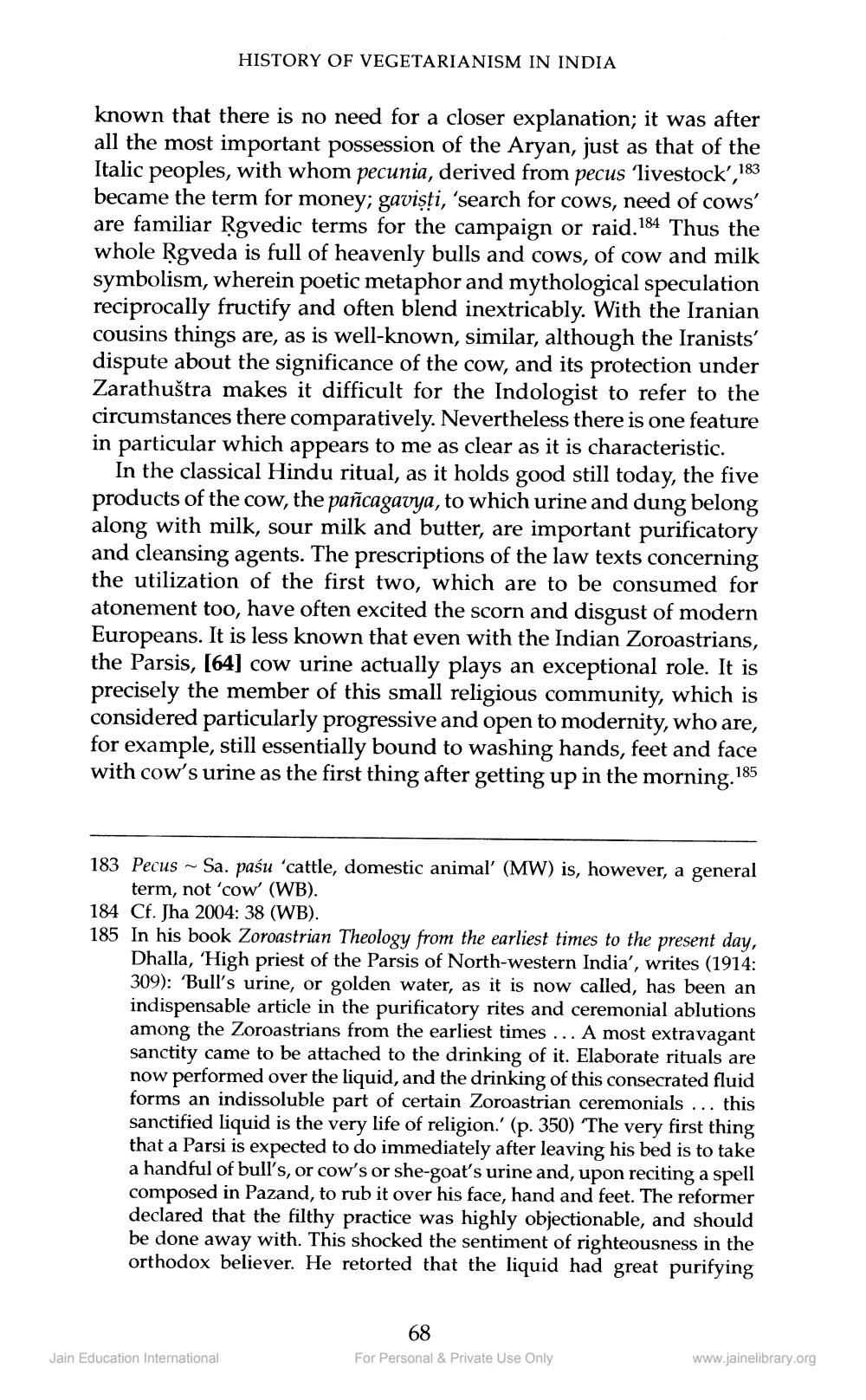________________
HISTORY OF VEGETARIANISM IN INDIA
known that there is no need for a closer explanation; it was after all the most important possession of the Aryan, just as that of the Italic peoples, with whom pecunia, derived from pecus 'livestock', 183 became the term for money; gavisti, 'search for cows, need of cows' are familiar Ṛgvedic terms for the campaign or raid. 184 Thus the whole Rgveda is full of heavenly bulls and cows, of cow and milk symbolism, wherein poetic metaphor and mythological speculation reciprocally fructify and often blend inextricably. With the Iranian cousins things are, as is well-known, similar, although the Iranists' dispute about the significance of the cow, and its protection under Zarathustra makes it difficult for the Indologist to refer to the circumstances there comparatively. Nevertheless there is one feature in particular which appears to me as clear as it is characteristic.
In the classical Hindu ritual, as it holds good still today, the five products of the cow, the pañcagavya, to which urine and dung belong along with milk, sour milk and butter, are important purificatory and cleansing agents. The prescriptions of the law texts concerning the utilization of the first two, which are to be consumed for atonement too, have often excited the scorn and disgust of modern Europeans. It is less known that even with the Indian Zoroastrians, the Parsis, [64] cow urine actually plays an exceptional role. It is precisely the member of this small religious community, which is considered particularly progressive and open to modernity, who are, for example, still essentially bound to washing hands, feet and face with cow's urine as the first thing after getting up in the morning.185
183 Pecus~ Sa. paśu 'cattle, domestic animal' (MW) is, however, a general term, not 'cow' (WB).
184 Cf. Jha 2004: 38 (WB).
185 In his book Zoroastrian Theology from the earliest times to the present day, Dhalla, 'High priest of the Parsis of North-western India', writes (1914: 309): 'Bull's urine, or golden water, as it is now called, has been an indispensable article in the purificatory rites and ceremonial ablutions among the Zoroastrians from the earliest times... A most extravagant sanctity came to be attached to the drinking of it. Elaborate rituals are now performed over the liquid, and the drinking of this consecrated fluid forms an indissoluble part of certain Zoroastrian ceremonials ... this sanctified liquid is the very life of religion.' (p. 350) The very first thing that a Parsi is expected to do immediately after leaving his bed is to take a handful of bull's, or cow's or she-goat's urine and, upon reciting a spell composed in Pazand, to rub it over his face, hand and feet. The reformer declared that the filthy practice was highly objectionable, and should be done away with. This shocked the sentiment of righteousness in the orthodox believer. He retorted that the liquid had great purifying
Jain Education International
68
For Personal & Private Use Only
www.jainelibrary.org




